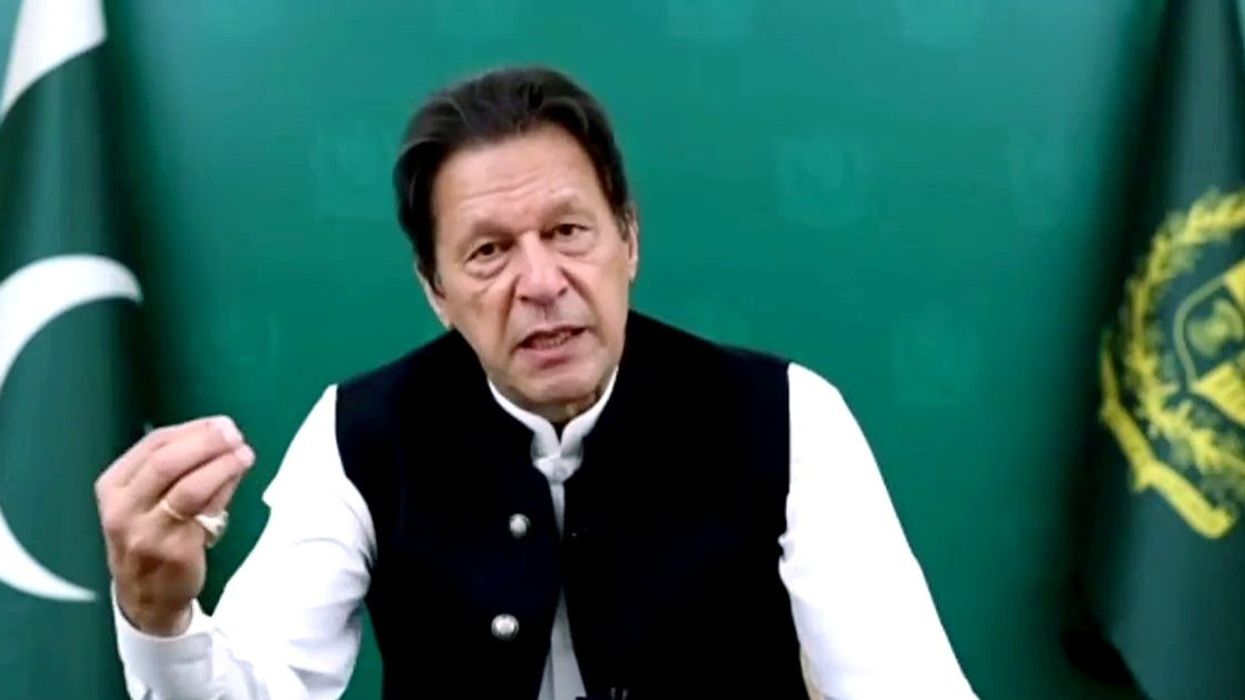PAKISTAN'S opposition parties have submitted a no-confidence motion against prime minister Imran Khan, holding his government responsible for the spiralling inflation.
The motion, signed by about 100 lawmakers from the Pakistan Muslim League-Nawaz (PML-N) and Pakistan Peoples Party (PPP), was submitted to the National Assembly Secretariat on Tuesday (8).
"We have taken this decision for the people of Pakistan and not for ourselves," PML-N president and leader of the opposition Shehbaz Sharif said.
Signatures of at least 68 members of parliament are required to force the Speaker to summon a session, which should be convened between three and seven days to conduct a vote on a no-confidence motion.
In the House of 342, the opposition needs the support of 172 members to remove the prime minister and his cabinet.
Khan, 69, who is heading a coalition government, can be removed if some of the partners decide to switch sides, which is not unusual in parliamentary democracies.
Reacting to the opposition move, Khan said the country's powerful army was with him and he was confident that the government was “not going anywhere”.
"The army stands with me, it will never support thieves ... and since the people are not backing the opposition any more, they are claiming that the establishment is supporting them," he said.
The army, which has ruled Pakistan for more than half of its 73 plus years of existence, has hitherto wielded considerable power in the matters of security and foreign policy.
"After this, nothing will happen against this government till 2028... The opposition will face a humiliating defeat," the prime minister said.
"My lawmakers are being offered Rs 180 million (equivalent to £762,750 for supporting no-confidence motion). I told them to take the money and distribute it among the poor," he claimed.
Echoing the ruling party's narrative of international conspiracy behind attempts seeking his removal, Khan said people who do not want an independent foreign policy would support the no-confidence motion.
Khan had said he was ready for everything the opposition throws at him.
Opposition parties blame Khan's government for “uncontrolled inflation” that has broken the back of poor people of the country, while Khan accuses them of trying to remove him as he was not willing to condone the alleged corruption by the leading opposition leaders.
The opposition is confident of having the required numbers to remove Khan, Geo TV reported, citing sources.
The opposition has claimed that they have the backing of 28 lawmakers of the ruling party and others from an ally of the government, sources said.
Meanwhile, Khan's close aide Aleem Khan announced that he would be joining hands with disgruntled party leader Jahangir Tareen, prompting the prime minister to dispatch Sindh governor Imran Ismail to Lahore to pacify the former Punjab minister.
Khan has also summoned the attorney general of Pakistan at the Prime Minister's House to discuss legal aspects after the Opposition tabled the no-trust move against him.
Khan, a former cricketer, came to power in 2018 and elections are to be held in 2023 if he succeeds to ward off the challenge of the no-trust move.
He had promised to clean the country of corruption and create a “new Pakistan”.
Last year in March, the prime minister had voluntarily sought a trust vote following an upset in Senate elections. In a show of strength, he had secured 178 votes – six more than required – to win the vote of confidence from the National Assembly, the Dawn reported.
(PTI)
Pakistan's opposition submits no-trust motion against Imran Khan




